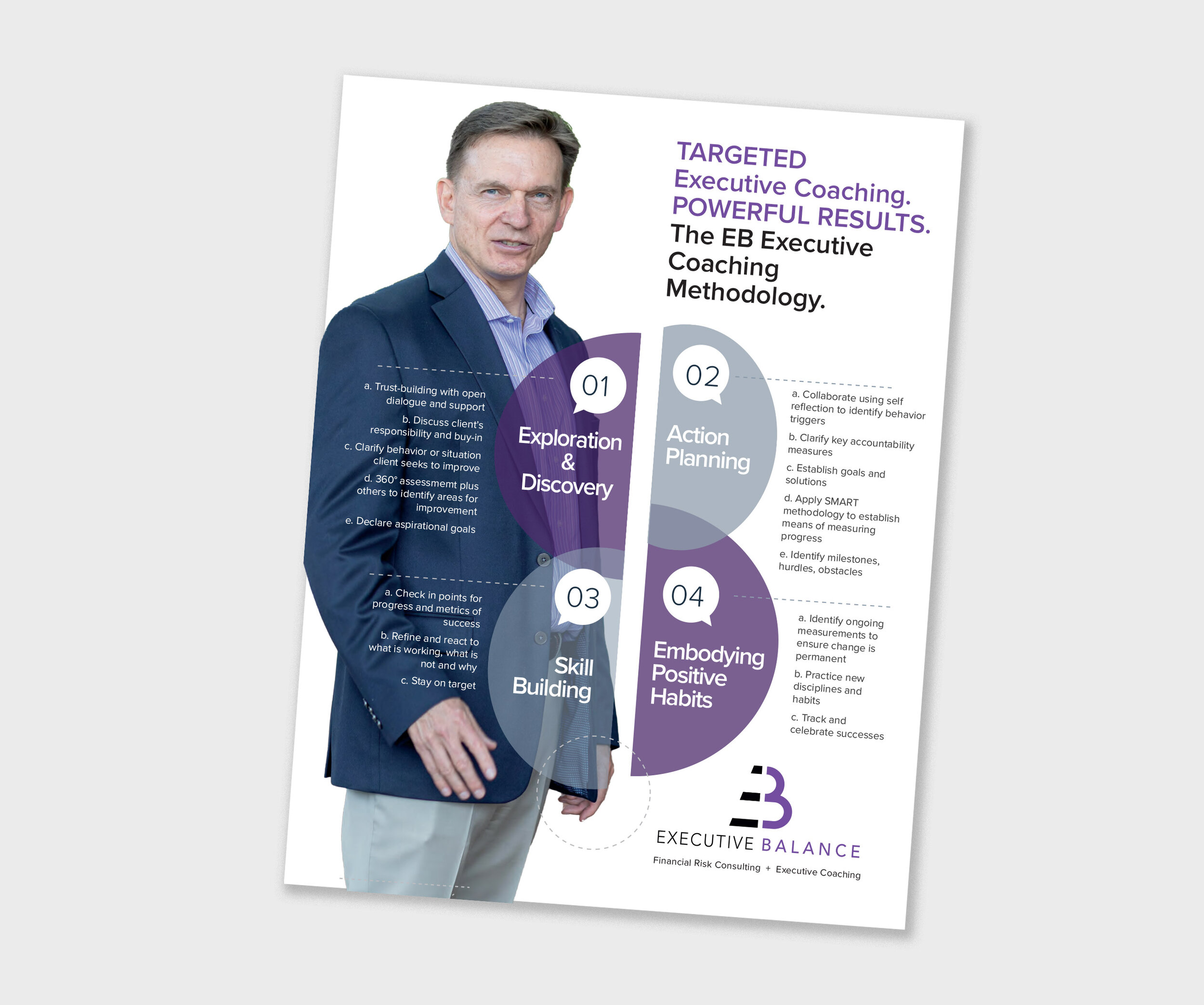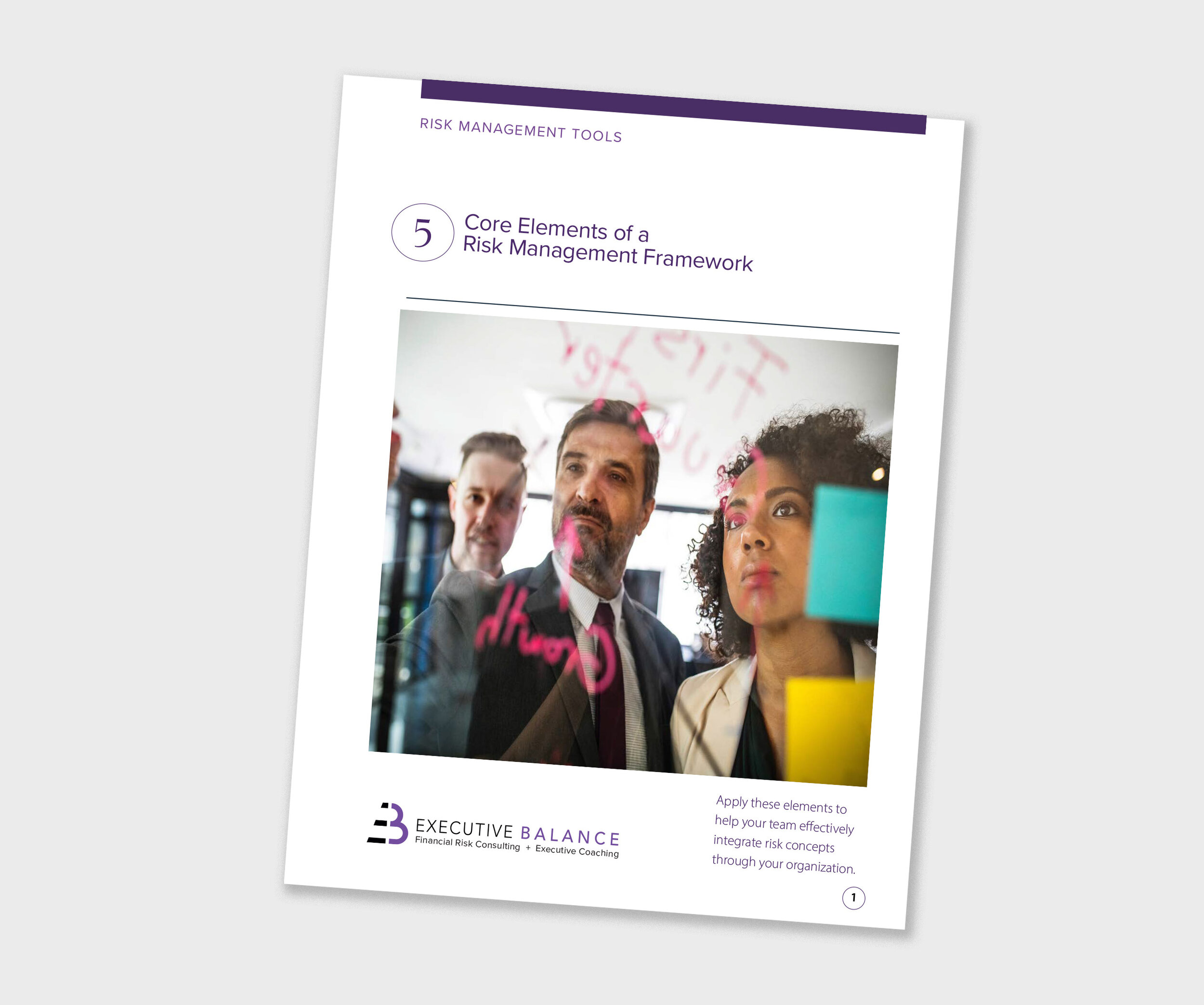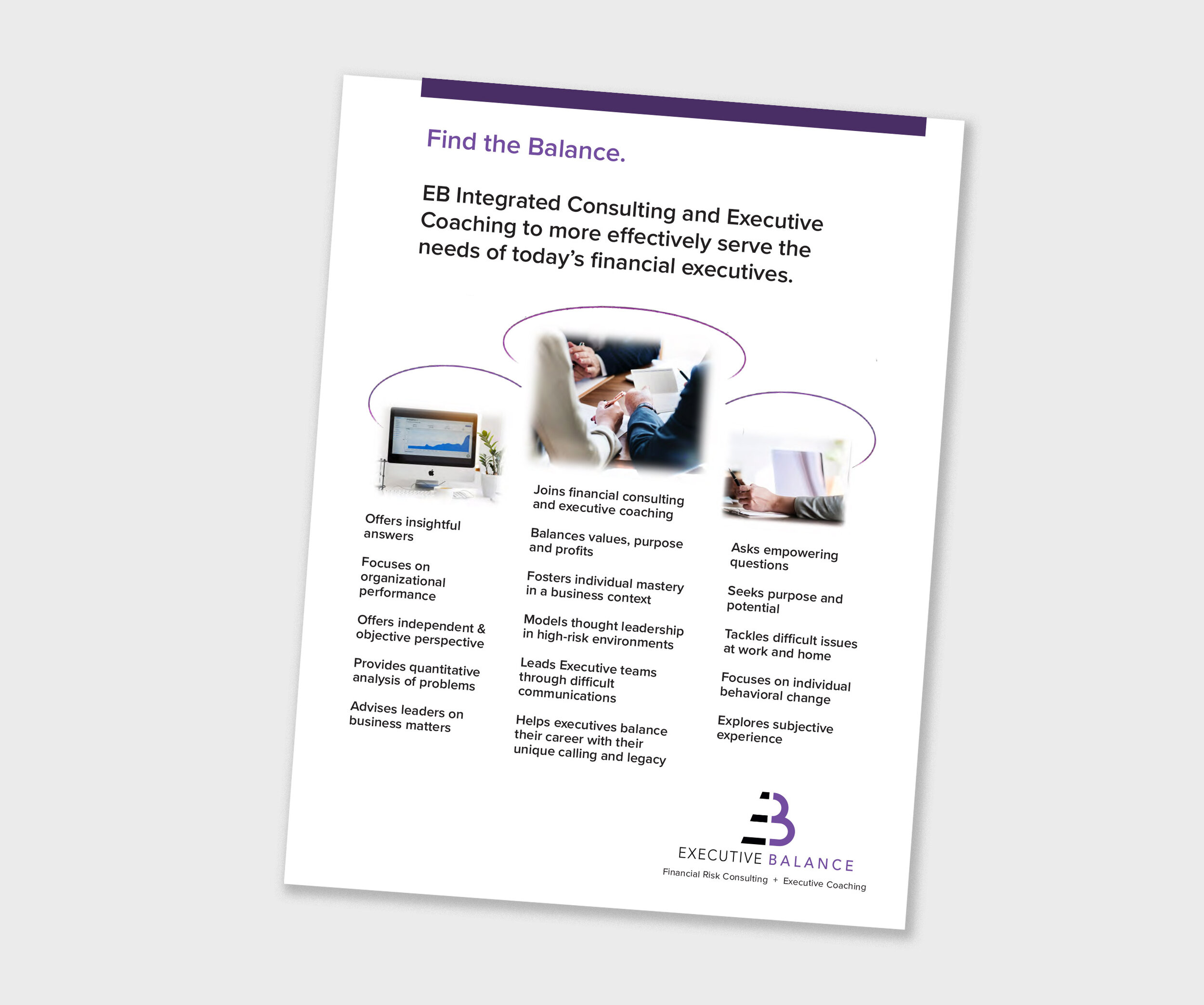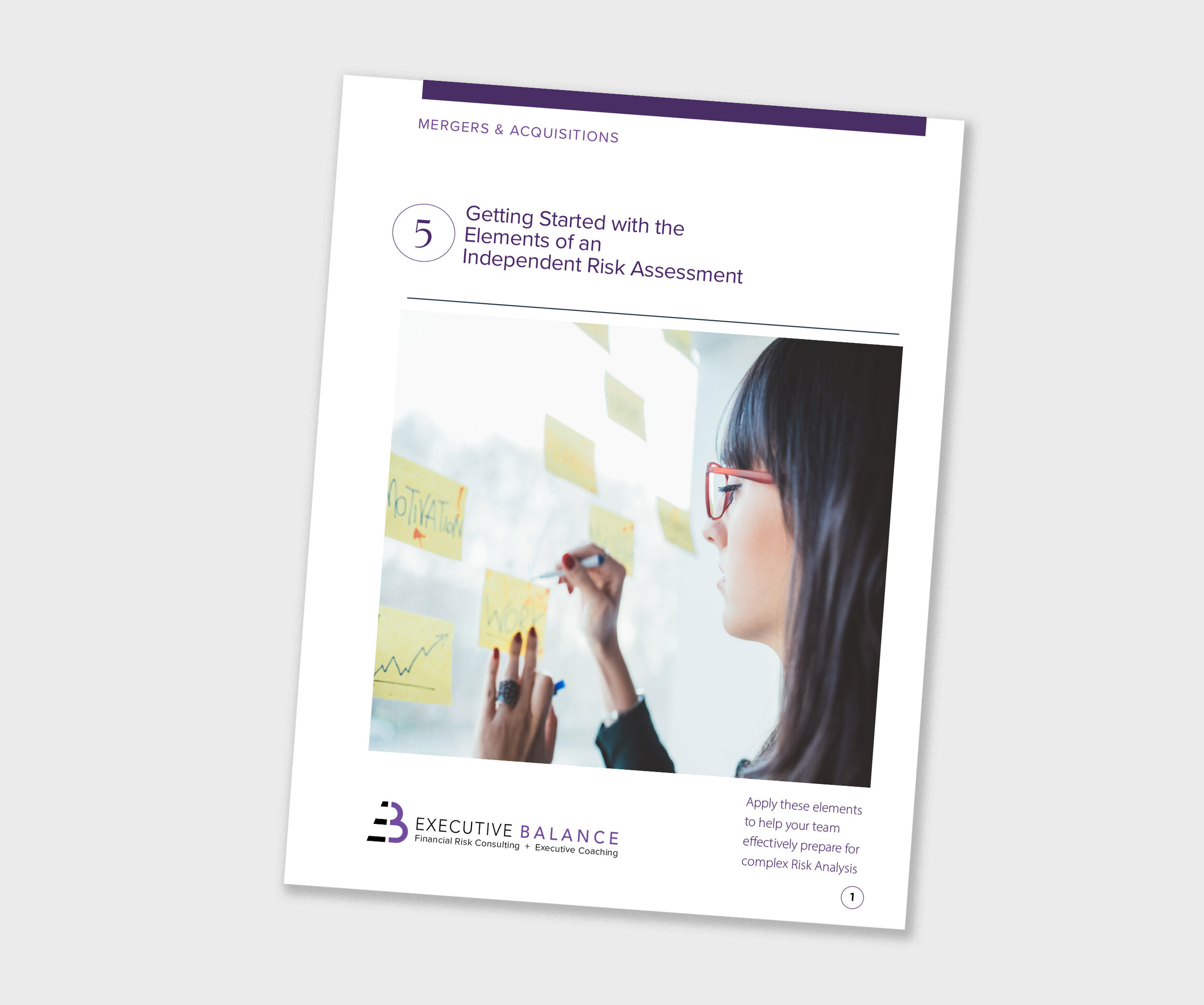
1) What is the difference between consulting and coaching?
Traditionally, experienced consultants “have insightful answers” and executive coaches “ask empowering questions”. At Executive Balance, we see how our clients are benefiting from both options. Today’s business environment is screaming for leaders who are adept at solving complex issues as well as creating a culture of acceptance and mutual respect for the problems and challenges people face, inside the workplace and beyond.
2) Is your coaching practice limited to only Executives?
While the majority of our engagements involve working with executives, we also enjoy working with high-potential men and women who are ambitious, and ready to move into more complex and demanding roles while remaining committed to their values. At the time of the complimentary coaching call, we assess fit, both for the client, and for us.
3) What is your experience with M&A?
For eight years I developed Independent Risk Assessments impacting many potential acquisition targets for BB&T. Targets ranged from financial institutions/banks, to asset management and broker/dealers to insurance companies. Assessments included current state analysis and proforma risk appetite analysis.
4) What is your experience with Private Equity?
I served on the advisory board of Five Points Capital for seven years as the Risk Executive. In this role, I provided effective challenge to new and renewing investments in the small-middle Private Equity markets.
5) For Executive Coaching, what kinds of personal assessments do you recommend or use?
Every client has his or her own unique goals and challenges. In most situations, I rely on a variety of quality assessments that measure strengths, values, and emotional intelligence. As a Certified Energy Leadership coach and experienced executive leader, I’ll be able to tap in to a host of tools and resources that benefit the particular needs of my client.
6) Are your fees the same for Consulting and Executive coaching?
Great question! Actually, No. That’s because the majority of my consulting work is project-based and often requires 50 hours per week during the assignment. Executive Coaching, on the other hand, is more process-oriented and deliberative. Fees for coaching may be packaged or billed hourly, depending on the engagement.
7) Please help me understand how coaching is different from some other similar personal services.
Coaching is not therapy, counseling, mentoring, sports coaching, friendship. Each of these certainly add tremendous value to relationships and are necessary for a well balanced life. By focusing on performance improvement, learning and development in certain areas of life, Coaching helps the client move forward by focusing on the “who”.
8) WHAT SETS EXECUTIVE BALANCE COACHING APART FROM OTHER COACHING FIRMS?
My background and experience is very different from most coaches. I evolved my career from a quantitative technician (bond trader) into management and leadership. I’ve been through and experienced many of the situations clients find themselves in right now. Coupled with intense coach training from iPEC, I bring a complete package with full perspective to help clients.
9) What is the typical executive coaching time commitment?
We will start you off with a complementary “discovery” session to talk about executive coaching and to determine if there is a good fit between us. While every executive coaching assignment is highly customized, our process stems from the following:
Coaching sessions typically occur 2-3 times per month at which time we work on developmental issues—driven by you. I’ll carefully select assessments to help both of us gain a clear and objective baseline of your strengths, values, goals and challenges.
Throughout your coaching, our conversations will focus on you, your personal and professional history and accomplishments, how and why you make the decisions you do, and how you manage the world around you.
As we’re building trust, I’ll also be analyzing the data from our assessments and conversations in order to help you create a customized executive development plan. Together, we’ll look at targeted areas of focus, strategic issues within your organization, and goals for personal developmental.
10) Where did the name Executive Balance come from?
My life’s goal is to leave a legacy that improves the life of others. I care deeply about balancing the things in life and work that really matter…. like living on purpose, giving back to the community we serve, and bringing our best selves into the workplace, no matter our role.
Get Immediate Access to our Resource Library!
Enjoy any of our free Financial Risk and Executive Leadership resources.
Simply complete the form below to get your password and immediate access.





